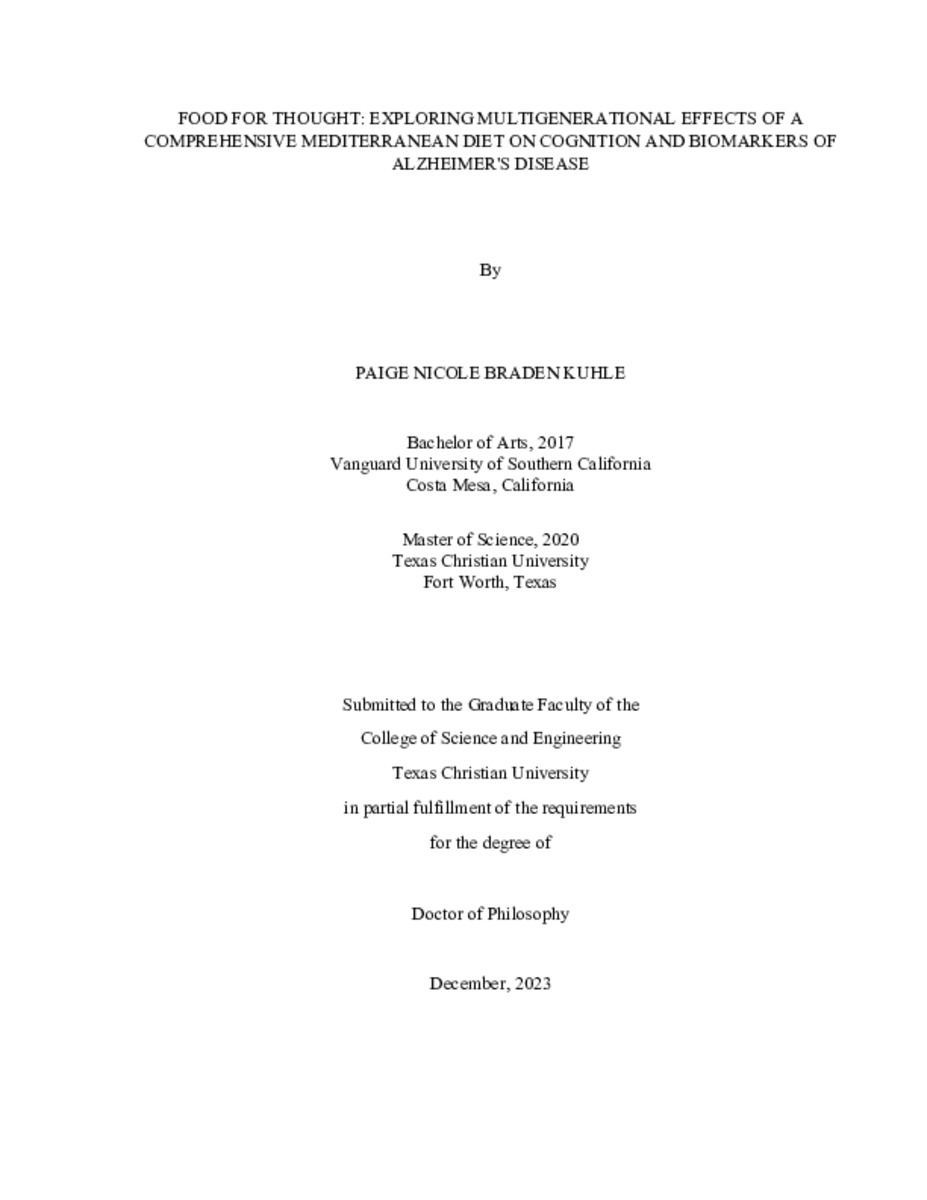Food for thought: exploring multigenerational effects of a comprehensive Mediterranean diet on cognition and biomarkers of Alzheimer's diseaseShow full item record
| Title | Food for thought: exploring multigenerational effects of a comprehensive Mediterranean diet on cognition and biomarkers of Alzheimer's disease |
|---|---|
| Author | Braden Kuhle, Paige Nicole |
| Date | 2023-12-18 |
| Genre | Dissertation |
| Abstract | Recent evidence suggests that approximately 40% of all dementia cases, including Alzheimer's disease (AD), could potentially be prevented by targeting modifiable risk factors, like mid-life obesity (Livingston et al., 2020). Thus, it is crucial to understand how nutritional prevention strategies, like early-life implementation of the Mediterranean Diet (MD), could potentially reduce risk factors and prevent AD later in life. Notably, a recent study found that strict adherence to the traditional MD was associated with a 72% reduced risk of dementia in older Greek adults (Charisis et al., 2021). Although individual Mediterranean dietary factors have been shown to protect the brain from AD neuropathology and cognitive impairment in rodents, the biological and behavioral mechanisms underlying a comprehensive MD warrant further investigation. Therefore, the current experiment investigated the potential, protective effects of a comprehensive MD compared to a macronutrient-matched typical American diet (TAD) on AD markers in C57BL/6 mice. Following six months of diet administration, male mice on the MD had reduced body weight, adipose fat, fatty liver, serum TNF-a, cortical and hippocampal Aß1– 42, and improved spatial memory compared to males on the TAD. Interestingly, although both diets were macronutrient-matched, males on the MD consumed more kilocalories per day compared to males on the TAD. In females, the MD prevented elevated cortical Aß1–42, serum TNF-a, and fatty liver but had no impact on kilocalorie intake, body weight, adipose fat, or spatial memory. Additionally, the MD suppressed LPS-induced neuroinflammation and BDNF loss in males. Behavioral changes, including increased exploratory activity and reduced anxiety, were observed in males on the MD, but not in females on the MD. Our findings in male mice supported our hypothesis that the MD would play a protective role against AD-related physiological, biological, and behavioral alterations compared to the TAD, and also emphasized the importance of diet composition rather than caloric intake alone. |
| Link | https://repository.tcu.edu/handle/116099117/61416 |
| Department | Psychology |
| Advisor | Boehm, Gary W Chumley, Michael J |
Files in this item
This item appears in the following Collection(s)
- Doctoral Dissertations [1526]
© TCU Library 2015 | Contact Special Collections |
HTML Sitemap



